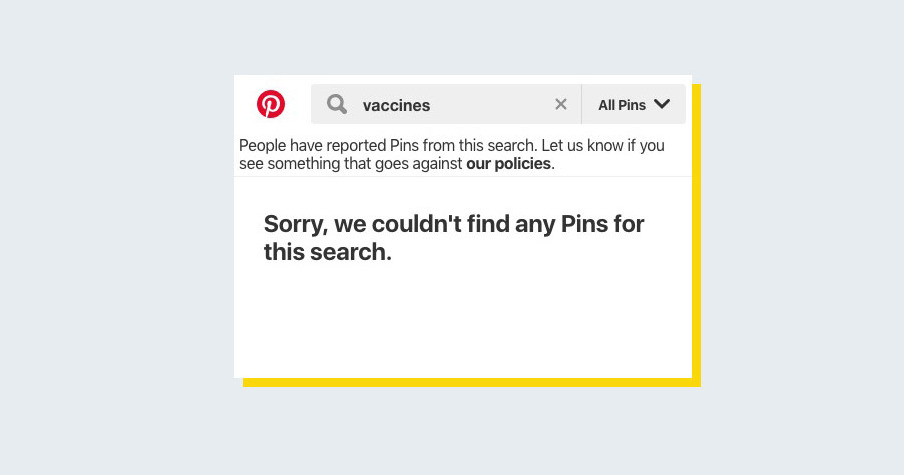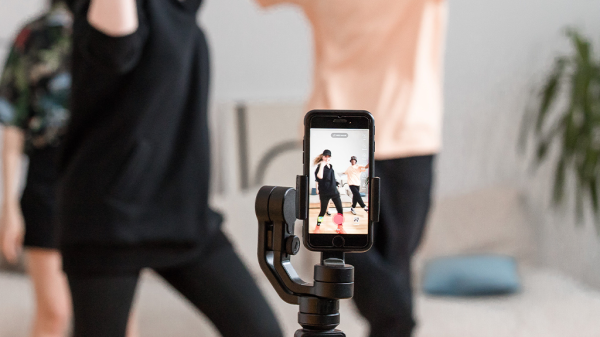The World Health Organization calls anti-vaxxers one of the top 10 health threats in the world.
Pinterest decided to do something about misinformation being spread by anti-vaxxers. You can no longer search for vaccines on Pinterest and get any information, pro or con about vaccines.
You’ll get a message, “People have reported Pins from this search. Let us know if you see something that goes against our policies.” And “Sorry, we couldn’t find any Pins for this search.”
Pinterest’s policy prohibits “This includes promotion of false cures for terminal or chronic illnesses and anti-vaccination advice.”
Pinterest is disabling search for vaccines while it finds a better solution to allow material that is appropriate. Users should report pins that are against Pinterest’s policy.
There are ways to get around the general search terms. Type in measles. Fortunately, many of the pins are helpful and promote ways to avoid the measles, namely vaccines. With tons of search variations, there’s almost no way to prevent all misinformation.
The company has publicly urged other social networks to join them in this effort to combat anti-vaxx misinformation. But will they follow suit?
Search Google for the measles vaccine and the search engine provides good information for the most part. The first 10 results when I searched were from legitimate sites, the CDC, WebMD, vaccines.gov and the Mayo Clinic. On Facebook, it’s far less clear if the results from a search are coming from authentic, legitimate sites or anti-vaxxers.
CNBC reports that Pinterest’s ban on vaccines and its determination to stop the spread of misinformation pertaining to public health could put pressure on other companies to do the same. Bloomberg reported that Facebook is “exploring additional measures to best combat the problem.”
Tech companies do have an obligation to provide quality information. But given the problems with fake news on Facebook, I think it’s safe to say that no matter what these companies do, people are going to try and continue to find ways to share bad information.
It’s easy to be deceptive on Facebook and other social media sites. Many people continue to be fooled by fake news posts and phishing emails.
Does Pinterest’s move constitute responsibility or is it censorship that could be a slippery slope? Time will tell.
For now, question everything. Use your critical thinking skills to verify information. Maybe someone will come up with a solution to stop online hoaxes, but then the hoaxers will just find new ways to bend the rules.
Dawn Brotherton is a Sr. Staff Writer at The American Genius with an MFA in Creative Writing from the University of Central Oklahoma. She is an experienced business writer with over 10 years of experience in SEO and content creation. Since 2017, she has earned $60K+ in grant writing for a local community center, which assists disadvantaged adults in the area.









































